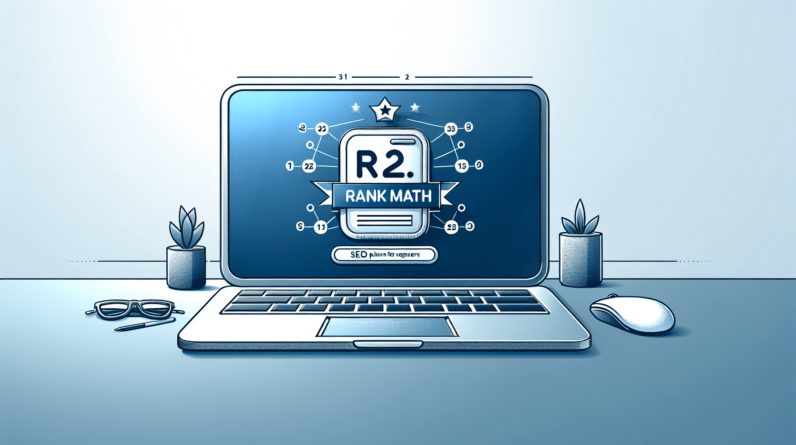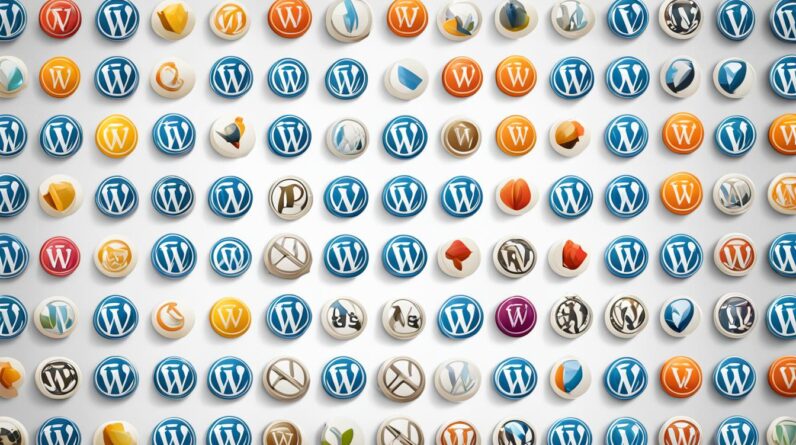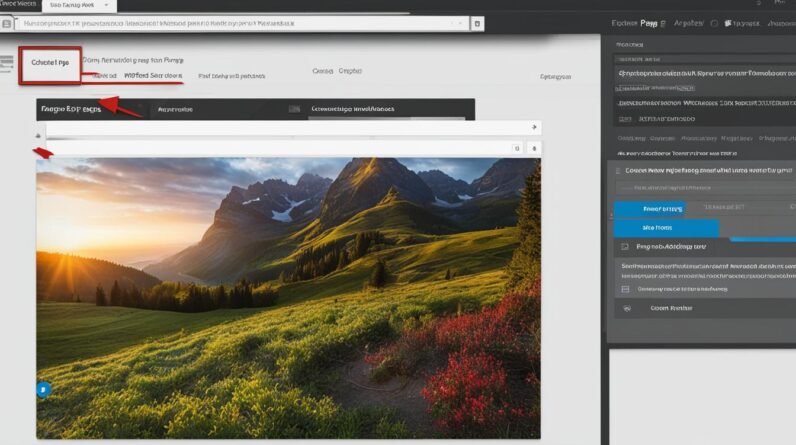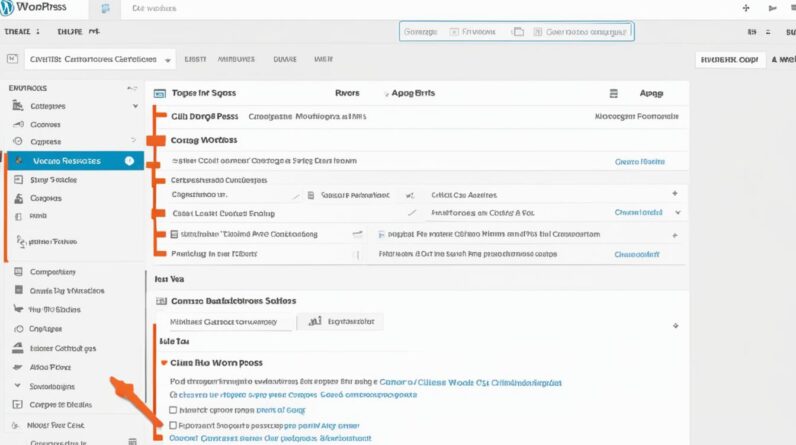You may be wondering if it’s possible to migrate your website to WordPress from another platform. The good news is, it absolutely is! Whether you currently have a website on Joomla, Drupal, Wix, or any other platform, WordPress offers a seamless and straightforward migration process that allows you to transfer your content, design, and functionality with ease. In this article, we will explore the various methods and tools available to help you successfully migrate your website to WordPress. So, if you’re ready to make the switch and take advantage of all the benefits that WordPress has to offer, let’s get started!
How to Make Money with YouTube
Create an empire of automated video websites for multiple streams of income
Why Migrate to WordPress?
If you’re considering migrating your website to WordPress from another platform, you’re making a smart choice. WordPress is one of the most popular content management systems (CMS) available today, and for good reason. It offers a wide range of advantages that make it a top choice for website owners and developers. In this article, we’ll explore the advantages of WordPress, as well as the disadvantages of other platforms. We’ll also walk you through the pre-migration considerations, the tools you can use for the migration process, and the step-by-step migration process itself. Additionally, we’ll discuss website design and functionality, data and content migration, SEO considerations, website performance and speed, as well as testing and bug fixing. Lastly, we’ll touch on the importance of post-migration maintenance. Let’s dive in!
Advantages of WordPress
WordPress has gained immense popularity due to its numerous advantages. First and foremost, it’s incredibly user-friendly. Even if you don’t have a background in web development, you can easily manage your WordPress website with its intuitive dashboard. Additionally, WordPress offers an extensive library of themes and plugins, allowing you to customize your website without needing to hire a developer. It also boasts a large community of users who can provide support and guidance when needed. Another key advantage of WordPress is its search engine optimization (SEO) capabilities. With built-in features and plugins, you can optimize your website for better search engine rankings. Lastly, WordPress is highly scalable, meaning you can easily grow your website as your business or blog expands. These advantages make WordPress a fantastic choice for website migration.

Disadvantages of Other Platforms
While other platforms may have their own strengths, they can often fall short in comparison to WordPress. For starters, some platforms have a steeper learning curve, making it difficult for beginners to navigate and manage their websites effectively. Additionally, these platforms may offer limited design and customization options, leaving you with a website that doesn’t truly reflect your brand or style. Another disadvantage is the lack of plugin options. Unlike WordPress, which has a vast plugin directory, other platforms may have fewer options for extending the functionality of your website. Furthermore, some platforms may not prioritize SEO, which can hinder your website’s rankings in search engine results. Taking these disadvantages into account, it becomes clear why migrating to WordPress is a favorable choice.
Pre-Migration Considerations
Before diving into the migration process, there are a few key considerations you need to address. First and foremost, it’s crucial to back up your website. This ensures that you have a copy of your website’s data and content in case anything goes wrong during the migration process. Next, you need to evaluate the WordPress platform to ensure it meets your website’s requirements. Take the time to explore its features, scalability, and available themes and plugins. Lastly, you’ll need to map your content and data from your current platform to WordPress. This includes determining how your pages, posts, images, and other media will be transferred to the new platform.

Tools for Website Migration
Now that you’ve completed the pre-migration considerations, it’s time to explore the tools available for website migration to WordPress. WordPress itself offers an import/export tool that allows you to transfer your content from your current platform to the WordPress platform. This tool is relatively simple to use and can handle basic migrations. However, for more complex migrations, third-party migration plugins are recommended. These plugins offer additional features and flexibility, making the migration process smoother and more efficient.
Step-by-Step Migration Process
With the necessary preparations and tools in place, it’s time to migrate your website to WordPress. Follow this step-by-step process to ensure a successful migration:
1. Install WordPress
Start by installing WordPress on your hosting server. Many hosting providers offer a one-click WordPress installation, making this step quick and easy. Once installed, you’ll have a fresh WordPress installation to work with.
2. Set Up a Theme
Choose a theme that aligns with your website’s design and functionality goals. There are thousands of free and premium themes available, so take your time to find the perfect one. Install and activate the theme in your WordPress dashboard.
3. Transfer Content
Now it’s time to transfer your content from your old platform to WordPress. This can be done using the WordPress import/export tool or a third-party migration plugin. Follow the instructions provided by the tool or plugin to transfer your pages, posts, and other content.
4. Redesign and Customize
Once your content is transferred, take the opportunity to redesign and customize your website. WordPress offers a wide range of customization options, allowing you to create a unique website that stands out. Adjust the theme’s settings, add widgets, and customize the layout to match your brand’s identity.

Website Design and Functionality
When migrating your website to WordPress, it’s important to consider the design and functionality aspects. Choosing the right theme is crucial, as it sets the overall look and feel of your website. WordPress offers a plethora of themes, ranging from minimalistic designs to intricate and feature-rich layouts. Take your time to explore the options and select a theme that aligns with your brand and goals. Additionally, if you’re migrating a website with a custom design, you’ll need to ensure the design elements are carried over to WordPress. Consult with a web developer if needed to ensure a seamless transition.
Data and Content Migration
One of the most critical aspects of website migration is transferring your data and content. Whether it’s pages, blog posts, images, or media, the way you handle the migration can impact the overall success of your new WordPress website. WordPress offers an import/export tool that can handle basic content migration. Simply export your content from your old platform and import it into your WordPress installation. However, if you have a large amount of content or complex data structures, a third-party migration plugin may be necessary. These plugins offer advanced features like mapping, filtering, and preserving URLs, ensuring a smooth migration process.

SEO Considerations
With the migration process complete, it’s important to consider your website’s SEO. Migrating to WordPress shouldn’t negatively impact your existing SEO rankings, but there are a few steps you should take to ensure a smooth transition. First, make sure to maintain your SEO settings from your old platform in WordPress. This includes meta tags, keywords, and other SEO-related configurations. Additionally, it’s crucial to update your URLs and permalinks to match the new structure of your WordPress website. This helps search engines understand the changes and update their indexes accordingly.
Website Performance and Speed
Optimizing your WordPress website for performance and speed is essential for providing a smooth user experience. WordPress offers a wide range of plugins that can help with this. Start by optimizing your plugins – remove any unnecessary ones and make sure the ones you keep are up to date. Additionally, consider using caching and content delivery network (CDN) tools to improve your website’s speed. Caching plugins help store static versions of your web pages, reducing the time it takes to load them. CDN tools distribute your website’s content across multiple servers, ensuring faster load times for visitors around the world.

Testing and Bug Fixing
Once your website migration is complete and all the necessary changes and optimizations are made, it’s essential to thoroughly test your website for any issues or bugs. Review the functionality of all your pages and features, and ensure that everything is working as expected. Test your website on different devices and browsers to ensure a consistent experience for all visitors. If you encounter any issues or bugs, troubleshoot them systematically to identify the cause and find a solution. By thoroughly testing and bug fixing your website, you can launch with confidence and provide a positive user experience.
Conclusion
Congratulations! You’ve successfully migrated your website to WordPress. By taking the time to consider the advantages of WordPress, addressing the pre-migration considerations, and following the step-by-step migration process, you’ve ensured a smooth transition. Remember to pay attention to website design and functionality, data and content migration, SEO considerations, website performance and speed, as well as testing and bug fixing. Regular post-migration maintenance will also be crucial to keep your WordPress website running smoothly. Enjoy the benefits of WordPress and the flexibility it offers for managing and growing your website.







